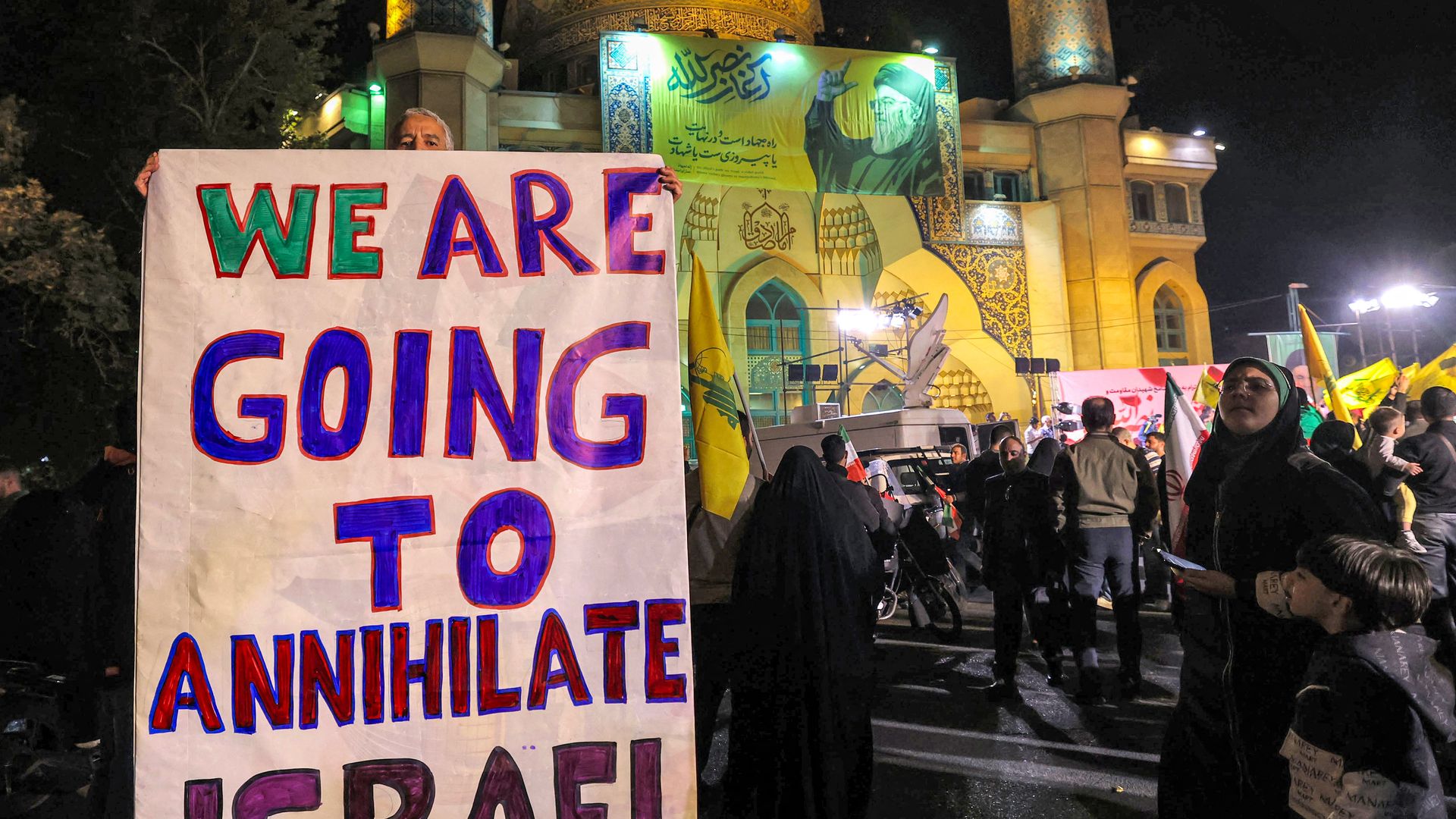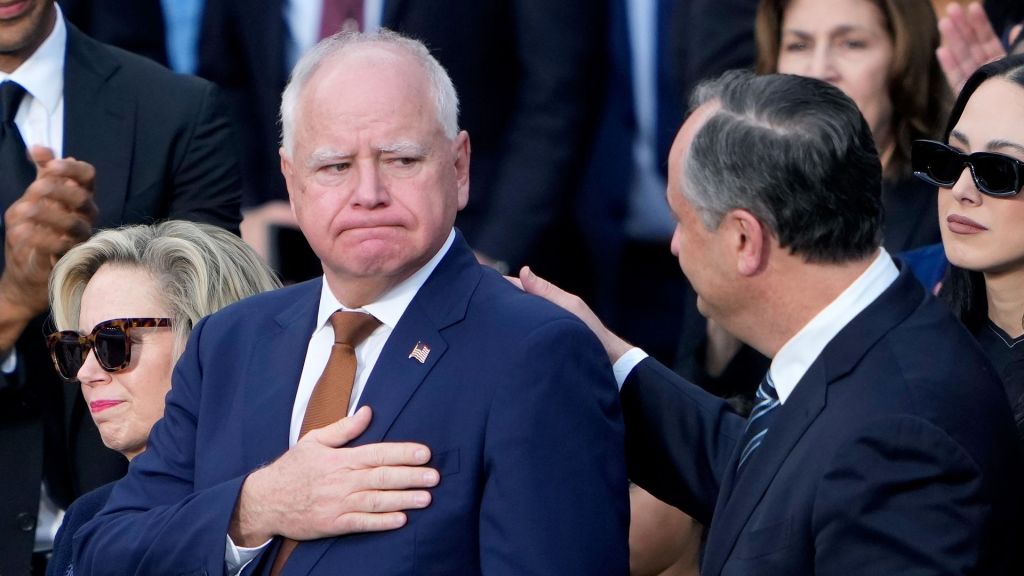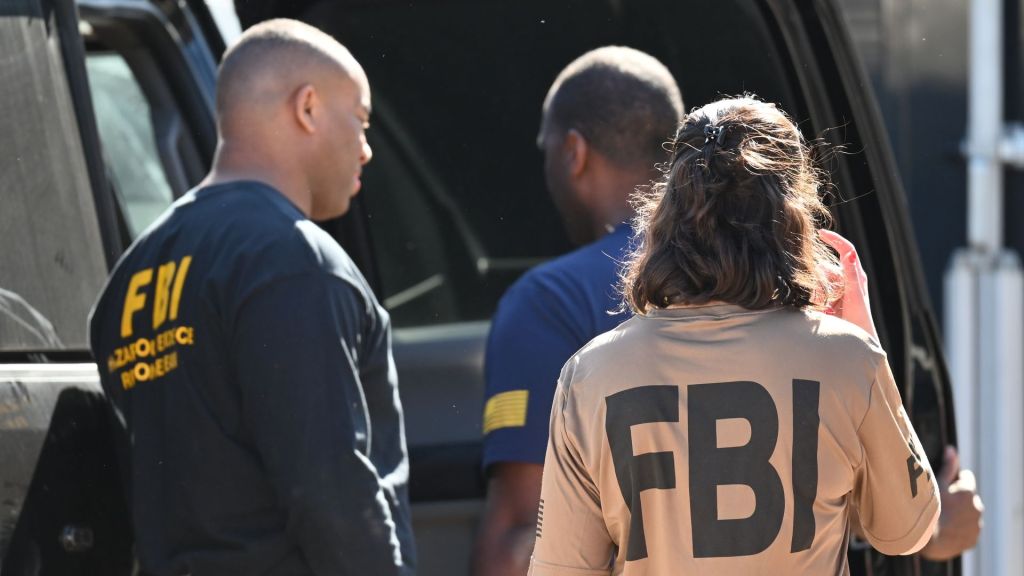
IRAN’S BALLISTIC MISSILE ATTACK WAS ONE OF THE LARGEST, MOST COMPLEX AND INVOLVED MORE ADVANCED WEAPONRY THAN ALMOST ANY THE MULLAH REGIME HAS EVER LAUNCHED AGAINST ISRAEL.
MORE THAN 180 INTERCONTINENTAL BALLISTIC MISSILES WERE DEPLOYED. EVIDENCE COLLECTED SO FAR POINTS TO IRAN USING ITS FATTAH-1 AND KHEYBARSHEKAN MISSILES IN THE STRIKE.
THERE IS DAMAGE ON THE GROUND, BUT WITH THE HELP OF SEVERAL US NAVY ARLEIGH-BURKE CLASS DESTROYERS ISRAEL’S AIR DEFENSE SYSTEMS HELD.
Avi Melamed:
The Iranians shot the 200 ballistic missiles or whatever. They killed one poor Palestinian who, by the way, was killed in the most horrifying way. It was really–the missile just straight fell on him when he was walking on the street.
AVI MELAMED IS A FORMER ISRAELI INTELLIGENCE OFFICER AND NEGOTIATOR. HE’S ALSO AN AUTHOR WHO’S WRITTEN EXTENSIVELY ABOUT THE PENDING CONFLICT BETWEEN IRAN AND ISRAEL.
Avi Melamed:
There has been reports that five IRGC personnel were killed and 12 injured when one of the missiles was exploding during the launching. The whole purpose of this attack, to a large extent, the Mullah regime desperately needs to restore its crumbling image and desperately needs to send a message that it is standing and supporting its proxies while they are being crushed.
IN THE LAST FEW MONTHS, ISRAEL DECIMATED HEZBOLLAH’S COMMAND STRUCTURE AND OFFICER CORPS, CULMINATING IN A STRIKE THAT TOOK OUT HASSAN NASRALLAH, HEZBOLLAH’S LEADER, IN BEIRUT.
AS IRAN’S MOST BELOVED AND WELL-ARMED PROXY, THE STRIKES AGAINST HEZBOLLAH COULD NOT GO UNANSWERED.
AND WHILE HE PREVIOUSLY HELD OUT HOPE DE ESCALATION WAS STILL POSSIBLE, MELAMED SAYS IN THE WAKE OF IRAN’S LATEST ICBM ATTACKS, IT ISN’T LIKELY.
Avi Melamed:
I do estimate that Israel will attack Iran. I think that the Israeli attack on Iran will be clearly significant and it will be coordinated with the United States, because we all understand that following something like that, you can’t just sit as if nothing happened.
THE BIG QUESTION NOW IS HOW EXACTLY WILL ISRAEL RESPOND? MELAMED SAYS HE DOESN’T THINK THE IDF WILL GO AFTER IRAN’S NUCLEAR FACILITIES OR ITS PETROLEUM PRODUCTION PLANTS.
Avi Melamed:
If you ask me, I would expect the Israeli attack would be robust enough to be visually viewed across the region. I would expect it to focus on military sites, some significant infrastructure. I would even think about governmental symbols, and particularly Islamic Revolutionary Guards in Iran. So, I think that there is a wide bank of targets that Israel can choose and can hit.
BY HITTING SIGNIFICANT INFRASTRUCTURE AND SYMBOLIC SITES, MELAMED SAYS ISRAEL CAN INFLICT DAMAGE TO THE MULLAH REGIME, SEND A MESSAGE THAT THE NEXT STRIKES COULD DEFINITELY BE WORSE, AND FURTHER DEMONSTRATE ISRAEL’S POWER IN THE REGION HOPEFULLY ACTING AS A MEANS OF DETERRENCE AGAINST FURTHER ESCALATION FROM IRAN.
MELAMED SAYS WHILE A DIRECT, ALL-OUT WAR BETWEEN THE TWO NATIONS CAN STILL BE AVOIDED, TIME MAY BE RUNNING OUT FOR ISRAEL AND THE WEST TO FIGURE OUT A WAY OF DEALING WITH THE MULLAH REGIME THAT DOESN’T END IN THAT SCENARIO
Avi Melamed:
More than 10 years ago, I wrote an article where I was basically predicting this scenario. And the reason for all this process, first and foremost, was because of the rapprochement of the Western powers towards this regime in Iran. They were not willing to confront this regime, thinking that by kicking the can down the road the problem would disappear. It did not. It just became bigger.
NOW, AS OF PUBLICATION, ISRAEL HASN’T RESPONDED TO IRAN’S ICBM ATTACKS. WHEN COULD THAT ATTACK COME? WELL, MELAMED SAYS THE JEWISH HIGH HOLY DAYS–WHICH START ON THE EVENING OF OCTOBER 2ND–COULD IMPACT THE TIMELINE, BUT HE SAYS A ROBUST RESPONSE IS DEFINITELY COMING.
FOR STRAIGHT ARROW NEWS I’M RYAN ROBERTSON. FOR MORE OF MY REPORTING ON THE CONFLICTS IN THE MIDDLE EAST DOWNLOAD THE STRAIGHT ARROW NEWS APP TODAY OR LOG ON TO SAN.COM.











